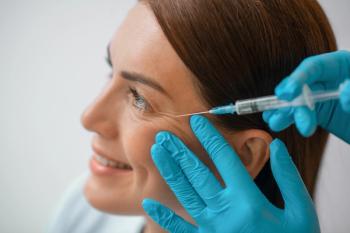
Coronavirus and the Cosmetic Practice
Where does COVID-19 leave the cosmetic medical practice? According to Dr. Jonathan Kaplan, it’s important to stay in contact with patients via technology like virtual consults and implement procedures to keep both physicians and patients safe.
As the Coronavirus (COVID-19) continues to spread, shutting down schools, businesses and more, healthcare professionals are hard at work trying to contain and fight the virus. But while hospitals are crowded with the sick, and the CDC is urging self-quarantine and social distancing, where does that leave the cosmetic practice?
According to Jonathan Kaplan, M.D., M.P.H., in a video supplied to the Aesthetic Authority, it’s about heeding the CDC’s advice, while still communicating with patients via technology and keeping the practice open by implementing safety procedures.
“[After a virtual consult] we determine whether the patient needs to come in for treatment or if they're a candidate for injectables or surgery,” he says. “And those are really the only patients we're seeing in our office right now.”
It’s standard protocol for Dr. Kaplan’s surgical patients to have their temperature taken, so this is business as usual. However, patients coming in for minimally invasive procedures or consultations are also having their temperature checked upon arrival as a precaution.
Other physicians are following suit, emailing their patients regular updates on changes to practice hours, scope of services and office visit guidance and posting on websites and to social media accounts.
In a statement from the
ASCA recommends the following for your practice and patients during this time:
- Keep practices open for urgent elective surgeries.
- Assess the potential risk factors for planned surgeries and postpone accordingly.
- Implement rigorous screening for patients, prior to entering the facility, this including temperature readings.
- Adhere to the CDC’s recommendation of social distancing.
- Implement enhanced cleaning as directed by CDC guidelines.
- Work with the supply chain to ensure that hospitals gain priority for necessary equipment and supplies.
- Collaborate with hospitals and health systems to coordinate care based on each community’s individual needs.
Like many physicians, Dr. Kaplan includes key information for patients on his
As many worry about the current pandemic, Dr. Kaplan also notes that it’s important to try to keep the economy going as much as possible.
“We have email and videoconferencing now, options not available during the 1918 flu epidemic,” he says. “Worried about going to a restaurant? Continue to order food from your favorite restaurant via food delivery apps. A doctor’s visit? Many doctors offer televisits for checkups and consults. My fear is that after we weather the storm of COVID-19, we’ll enter an economic storm of a different sort. Our collective economic health goes hand in hand with our goal of being physically and mentally healthy.”
Newsletter
Like what you’re reading? Subscribe to Dermatology Times for weekly updates on therapies, innovations, and real-world practice tips.











